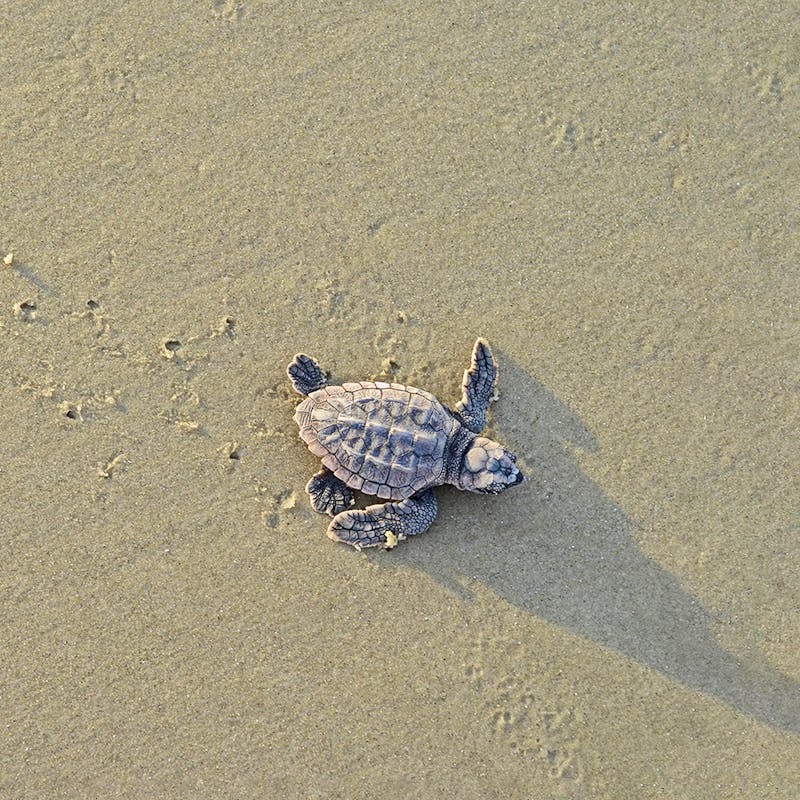Tweet“The Corps is needlessly killing some of North Carolina’s most iconic coastal species with this reckless reversal. We demand the Corps reinstate these tried-and-true wildlife-saving protocols immediately.”
Today Defenders of Wildlife, Cape Fear River Watch, and North Carolina Wildlife Federation, represented by the Southern Environmental Law Center (SELC), filed a challenge against the U.S. Army Corps of Engineers’ unlawful decision to eliminate highly successful seasonal limitations on hopper dredging projects that have protected sea turtles, fish species and other marine life for decades.
Due to the fact that hopper dredging operations kill and maim coastal wildlife and disturb their sensitive habitat, the Corps has historically conducted maintenance dredging at Wilmington and Morehead City Harbors during the winter months when federally protected sea turtles and sturgeon are far less abundant in North Carolina’s waters.
The Corps has now decided to reverse course on its decades-old policy by allowing year-round maintenance dredging — including during the spring and summer months when sea turtles, sturgeon and commercially and recreationally important fishery resources are most vulnerable to harm. This spring is a prime example: available data indicates multiple turtles were killed when the Corps dredged Morehead City Harbor in June.
“The Corps is needlessly killing some of North Carolina’s most iconic coastal species with this reckless reversal,” said Heather Clarkson, Southeast outreach representative at Defenders of Wildlife. “We demand the Corps reinstate these tried-and-true wildlife-saving protocols immediately.”
“The Corps’ unjustified about-face will have dire consequences for coastal wildlife,” said Ramona McGee, staff attorney for the Southern Environmental Law Center. “These historic seasonal restrictions on dredging have been in place for decades and supported by numerous scientific entities precisely because they work.”
The lawsuit filed with the U.S. District Court for the Eastern District of North Carolina alleges that the Corps did not properly explain its reversal in agency practice under the Administrative Procedure Act and failed to conduct a full and accurate environmental review required by the National Environmental Policy Act.
The Corps’ year-round dredging plans go against strong concerns raised by the Atlantic States Marine Fisheries Commission, South Atlantic Fishery Management Council, the North Carolina Wildlife Resources Commission, and the North Carolina Division of Marine Fisheries.
Hopper dredges, the Corps’ preferred method for maintaining Wilmington and Morehead Harbors, are massive vessels with large suction pipes that essentially vacuum up the entire bottom of the dredged water body. Sea turtles experience blunt force trauma from the size and force of hopper dredges’ suction pipes that makes their survival unlikely, while fish are often pulverized beyond recognition.
“Maintenance dredging plays a role in keeping North Carolina’s harbors safe and navigable, but the Corps has not provided a justifiable reason for ceasing to adhere to established winter dredging windows — the same windows that the Corps has self-imposed for the last three decades in recognition of their success in reducing wildlife deaths and environmental harm,” said Tim Gestwicki, CEO of North Carolina Wildlife Federation.
Hopper dredges present a particular risk to sea turtles. During the spring and summer, five different species of federally protected turtles — including hawksbill, leatherback, loggerhead, green and Kemp’s ridley — travel to North Carolina’s coast for breeding and nesting. The beaches surrounding Wilmington and Morehead City Harbors are likely to host hundreds of sea turtles laying nests during these months. Because sea turtles take decades to reach sexual maturity, the death or injury of a reproductive sea turtle can have devastating impacts on population recovery — part of the reason that seasonal restrictions on hopper dredging were implemented in the first place.
Hopper dredging also poses significant risks to fish species that rely on estuary areas and spawning sanctuaries in and around Wilmington and Morehead City Harbors, including the lower Cape Fear River within the Wilmington Harbor project area, which is designated as critical habitat under the Endangered Species Act for Atlantic sturgeon.
“The Corps has historically been willing and able to dredge in the winter to avoid the biologically-active spring and summer months,” said Kemp Burdette, Riverkeeper for Cape Fear River Watch. “Switching course doesn’t make sense and would pose an enormous threat to fish stocks and at-risk sea turtles at a time when their population numbers are already declining.”
The Corps also attempted to hopper dredge in Georgia this summer, a move SELC challenged on behalf of One Hundred Miles. A federal court enjoined the activity in May of this year, finding that the agency likely violated federal law when it failed to conduct an environmental review of its actions.
###
Additional Press Contact:
Alexandra Werner-Winslow, SELC Communications; 571-970-7260; awernerwinslow@selcva.org
About Cape River Fear Watch: Cape Fear River Watch was founded in 1993 to protect and improve the water quality of the Cape Fear River Basin for all people through education, advocacy and action. We have a history of proven success in the improvement and preservation of the health, beauty cleanliness and heritage of our watershed. www.capefearriverwatch.org
About North Carolina Wildlife Federation: North Carolina Wildlife Federation is a 501(c)(3) nonprofit organization dedicated to the protection, conservation, and restoration of North Carolina wildlife and habitat since 1945. www.ncwf.org
About Southern Environmental Law Center: For more than 30 years, the Southern Environmental Law Center has used the power of the law to champion the environment of the Southeast. With more than 80 attorneys and nine offices across the region, SELC is widely recognized as the Southeast’s foremost environmental organization and regional leader. SELC works on a full range of environmental issues to protect our natural resources and the health and well-being of all the people in our region. www.SouthernEnvironment.org
For over 75 years, Defenders of Wildlife has remained dedicated to protecting all native animals and plants in their natural communities. With a nationwide network of nearly 2.1 million members and activists, Defenders of Wildlife is a leading advocate for innovative solutions to safeguard our wildlife for generations to come. To learn more, please visit https://defenders.org/newsroom or follow us on X @Defenders.
Media Contact
News

Department of Interior’s “Emergency Declaration” Suppresses Public Input and Strips Safeguards for Endangered Species


